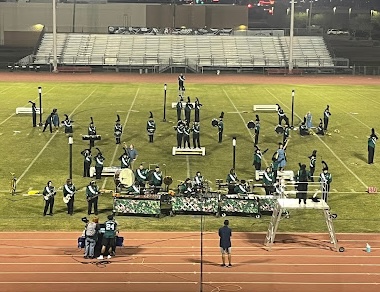Zion. T’s latest release impresses ‘OO’ is subtle and sweet Korean soul
Kian Hagerman
Mesa Legend

Zion. T released “OO” on Feb. 1, a fusion of soul singing and spoken rhyme that is that artist’s followup to “Red Light” which was released in 2013. An international tour of music genres comprise the instrumental portion of the album that begins with “Cinema,” an upbeat song with a South American sound and the gentle singing of Zion. T set to a great rhythm. The production techniques applied to the vocals add incredible depth to what might otherwise come across as minimalist, because of how softly each word is delivered.
Accompanied by a music video, “The Song” is the second track of the album, a cheerful piano and bass play, as Zion. T references in his lyrics. I would say that of all the tracks on “OO” that “The Song” is the most pop oriented, though it does not compromise cohesion with the rest of the album in the effort. I like the musical portion of “Comedian” a lot, though the laughing that is played beforehand goes on a bit long. The mellow groove of finger snapping, piano and percussion set the tone for Zion. T, and his vocal execution is pitch perfect.
Rapper Beenzino is featured on “Sorry,” a song about asking forgiveness from a loved one where he demonstrates his skill with lyrics that use words from the English, Korean, German and French languages. I like the funky guitar melody that plays throughout, and the chorus singing during each refrain adds an interesting dynamic to the song. My favorite track is the bouncy “Bad Guys,” a song that wonders about greed, and how fulfilling a life in pursuit of being rich can be.
More than any other track Zion. T’s talent for pacing is apparent on “Bad Guys” as he switches between rhythms at will, and skillfully so. When I first read through the tracklist prior to listening to the album, when I read that G-DRAGON made an appearance I didn’t know what to expect. “Complex” is a microcosm of the album, and I am glad that the collaboration between the two artists was a success.
Though the last track “Cinema (Instrumental)” is a nice inclusion, I consider the true end of the album to be “Wishes (2015).” Beginning softly, the song builds to grand soaring moments where Zion. T sends off listeners with odd lyrics, singing about being unable to sing. It may sound sad but it is beautifully crafted, and I think it closes out the album with the same impact it began with.









